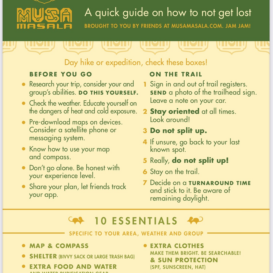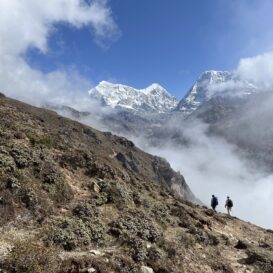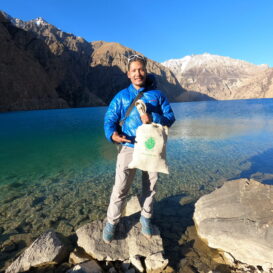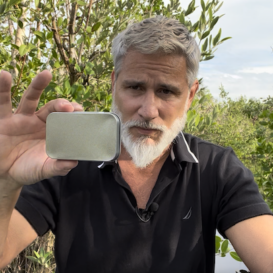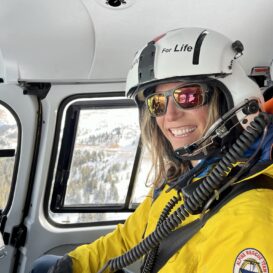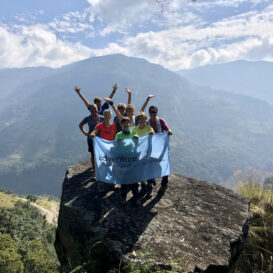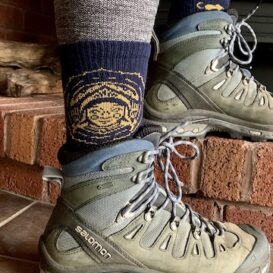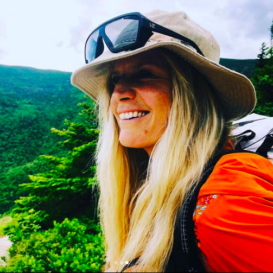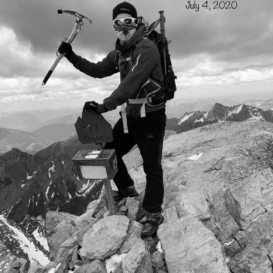If you have ever gotten confused and turned around in the wilderness, had that fog layer come down outta nowhere or somehow gotten on the wrong trail, you know what a deeply disturbing and dreadful feeling that can bring. How about we try to not let that happen?
Honestly, it probably will happen if you’re out a lot over the years, but preparation can make it a non-issue or help you take care of yourself and find your way back to your happy place.
Angela Widler is back with more really important tips and information on how to keep from getting lost, and what to do if misfortune finds you. Read and absorb what search and rescue (SAR) teams want you to know to make your unplanned time in the wilderness short and successful.
We have much more to come in this series. In upcoming posts, we’ll go deeper into these topics. We’ll also have a handy tips card for you in the near future. So please read on, and let’s hold tight to each other and stay found. Jam Jam!

Helpful hints to keep from getting lost
Take a class on navigation.
Consider using outdoor navigation apps like Caltopo, Gaia and All Trails and learn how to use them.
Take time to map out the area in advance.
Do not rely on your friends to guide the way. I know I have been in situations where I thought my friend knew where we were going and I did not take the time to map out our route myself, and we got lost. I’ve never felt more helpless and unprepared. Everyone should understand where you are going and how to get there.
Don’t forget to look back frequently. Your surroundings appear different when viewed from the opposite direction. Pay attention to trail junctions and make note of features that can be used as a reference point.
Always have some form of map and compass. If this is your phone, keep your phone near your body to slow battery loss from the cold and make sure you bring a wireless charger, and/or have a backup form of navigation.
If you’re in a group, do not split up unless absolutely necessary and every individual is equipped with the necessary knowledge and gear. No summit is more important than your friend or family member. I cannot tell you how many of our rescues start with, “We split up… I never saw them again.”

Helpful hints if you get lost
Don’t just do something, stand there! Slow down and think. Take in as much information as you can. Have a sip of water and a snack. Then form a plan.
Call 911 even if you do not have service. Cell phone carriers are required to push through 911 calls even if the caller is not using their service.
If your call does go through, your coordinates can often be determined within a certain range. While not exact, this can go a long way in helping find you. Try to be as concise as possible and convey pertinent information (i.e. where you are, is anyone hurt, how many in your party…) as you may not get another chance to communicate your situation.
If your voice call does not go through, try sending a text message which is available in certain areas and requires less bandwidth. Once you have requested help, stay put unless expressly directed otherwise.
Reach out for help early. Please do not be embarrassed to call for help. We LOVE what we do and are here for you. A delay can result in getting yourself into a worse situation, whether that be further from help, into dangerous terrain, or poor weather and nightfall which makes you more difficult to find and has a greater potential for complications like hypothermia in addition to increased risk to rescuers.
Often if you can make cell contact, your location can be determined, and a simple conversation and directions over the phone may be enough to get you back on track.
Be searchable. If it’s nighttime, have a light on — or, if appropriate, start a fire. This will make you easy to find.
Blow your whistle periodically. And listen! If you hear shouting, shout back and/or blow a whistle.
Make sure you are visible. While it may be necessary to hunker down and shelter, you may need to periodically get out of your shelter so that you can hear and be heard and seen.
Here’s what SAR people wish you knew before getting lost
Plan ahead to make yourself searchable. Wear bright colors, make sure you always have a light source, consider a whistle.
If it’s wintertime, please carry a transceiver whether you are hiking, snowshoeing, snowmobiling, or skiing. Avalanches are not limited to skiers, all manner of recreators can be caught. Sadly, it is not uncommon for a group of snowshoers and their dogs to get buried, and too often they are not carrying transceivers because they did not recognize the risk or understand the importance of being searchable.

Carry a two-way satellite communicator (i.e. Garmin InReach, ZOLEO, Somewhere Global Hotspot, Bivy Stick, SPOT X…). These not only can send an SOS and location in the absence of cell/internet service, but also allow you to send text messages with details to dispatch, rescuers and communicate with loved ones. While one-way communicators will send an SOS, they do not allow for communication making their utility more limited.
Make sure someone knows where you are going, timing, plan, and even where you plan to park your car. There are many apps, such as Strava, that will allow you to share your real-time location with your family and friends. The more details you can share the more likely you can be found.
Get in the habit of carrying the 10 essentials, this could easily be the difference between surviving or not, and at the least may lessen or alleviate suffering. As one of my teammates Dale Atkins says, “The ten essentials enable one to survive simply instead of trying to simply survive.”
Consider these practices even for what you consider to be a simple day hike. We never expect to get hurt or lost, but it happens all the time.
The Ten Essential items SAR recommends
- First Aid Kit
- GPS, map and compass
- Pocket knife
- Waterproof matches/fire starter
- Shelter (i.e. bivy, bothy bag, a large durable trashbag…)
- Flashlight/light sources
- Warm/rain clothing
- Emergency food
- Emergency water
- Sunglasses/sun protection
Website: alpinerescueteam.org
Alpine Rescue Team, out of Evergreen in Colorado, has been helping people who are having their worst day in the mountains since 1959. They are a volunteer organization who rely heavily on donations from the public in order to operate. Donate: alpinerescueteam.org/support/donate
Facebook: facebook.com/AlpineRescue
Instagram: @alpinerescue
MRA website: mra.org
MRA facebook: facebook.com/MtnRescueAssoc
MRA Instagram: @mtnrescueassoc
SWARM website: https://wildernessmedapp.mypanetwork.com/
Angela Widler is an unpaid professional search and rescuer in Colorado and a Physician Assistant with over nine years of experience in emergency medicine. She has recently transitioned to trauma and acute care surgery and is excited to expand her medical knowledge and skills. Angela is an avid learner and teacher of wilderness medicine, achieving her FAWM through the WMS, and cofounding the wilderness medicine interest group through the AAPA, as well as a website, The Society of Wilderness and Remote Medicine APPs, where those interested in wilderness medicine can access resources for training, volunteering, and work. She resides in Colorado where she takes full advantage of the mountain access and enjoys adventuring as often as possible. She has had her fair share of “whoopsies” from getting lost to unplanned overnight epics and considers herself a bit of a growing expert on what not to do!


